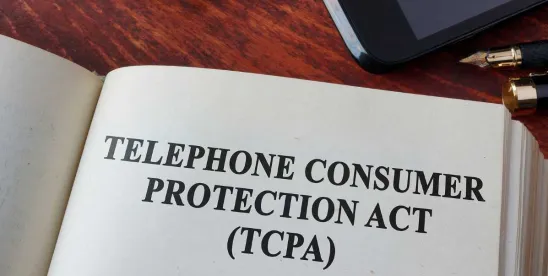For many of us, Covid-19 feels like a distant memory. But with the TCPA’s four-year statute of limitations, what’s in the past is rarely forgotten. The 10th Circuit Court of Appeals, in particular, has not forgotten the challenges of maintaining normalcy amidst social distancing measures and the raging pandemic.
In a recent decision, the 10th Circuit affirmed the New Mexico District Court’s dismissal of a TCPA case, holding that calls made by the City of Albuquerque to inform residents about virtual town-halls during the Covid-19 pandemic are covered by the TCPA’s emergency purposes exception. This decision notably expands scope of the emergency purposes exception – previously limited to calls conveying urgent health and safety information – to cover broader mitigation measures tied to public health emergencies.
Plaintiff Gerald Silver brought a putative class action against the City of Albuquerque, alleging that the city violated the TCPA by making pre-recorded phone calls inviting its residents to attend virtual town hall meetings during the COVID-19 pandemic. The calls were made to residents designated by the (505) area code. Silver’s complaint alleges that he received “at least seven prerecorded voice calls from the city on his cell phone” about the town halls.
Both parties agreed there was no commercial purpose to the calls, and that, during the period in which the calls were made, the federal government, the State of New Mexico, and the City of Albuquerque had all declared a state of public health emergency relating to Covid-19.
The city moved to dismiss Silver’s claim on two grounds: First, the city argued it was not subject to the TCPA because it was not a qualifying “person” under the statute; and second, the city contended that, even if it was subject to the TCPA, the calls fell under the TCPA’s exception for calls made for emergency purposes.
While the Court skirted around the issue of whether the TCPA applies to local governments, it held that Silver’s complaint did not show a violation of the TCPA. Although the TCPA generally prohibits the use of robocalls, it excepts from coverage “calls made necessary in any situation affecting the health and safety of consumers.” 47 C.F.R. § 64.1200(f)(4). The Court of Appeals undertook a two-step inquiry to determine whether the City’s calls were covered by the emergency purposes exception, looking at their (1) context and (2) content. Because the caller was a local government official, the “context” prong of the inquiry was satisfied. The “content” prong was also satisfied, because each call was informational. And because the City made the calls to inform citizens that town hall meetings would be held virtually—a mitigation measure “made necessary” by the social-distancing requirements of the pandemic—the Court of Appeals held that calls fall squarely within the exception.
“Because a virtual town hall meeting is itself a mitigation measure, any communications regarding those town hall meetings satisfy the content prong of the emergency purposes exception.”
The Court of Appeals also rejected Silver’s argument that because he had not expressed a desire to attend the town hall meetings, the phone calls were not relevant to him. The Court held that emergency purposes exception does not require that calls be tailored to an individual’s preferences, but rather, to an emergency that is relevant to the called party. Here, the emergency was the pandemic which, along with any associated mitigation measures, was relevant to all City residents.
Silver next argued that there were less intrusive means for the city to inform residents about the town halls, or, in the alternative, that the City’s calls could not have related to the pandemic because they did not explicitly mention Covid-19. Both these arguments failed to persuade the Court, because (1) the TCPA does not require calls to use specific words to invoke the emergency purposes exception, and (2) a caller is not required to use the least intrusive means available.
You can read the Court of Appeals’ Order here: Gerald Silver v. City of Albuquerque




 />i
/>i

